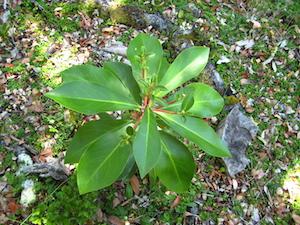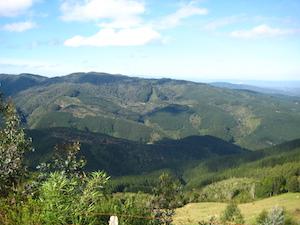Jose Arias Bustamante
This project aims to identify locally based climate change adaptation and mitigation strategies, in lands being contested by Mapuche communities, and thus going beyond the multilateral efforts lead by the developed countries.

Canelo (Drimys winteri) Mapuche people’s sacred tree.
Mapuche people are claiming rights to their ancestral territorial spaces, including the ownership of land and control over the territory, in order to exercise the right to set their development priorities and have the natural resources to ensure their existence as a people. However, over the same land Forest companies have the legal access to the land, and therefore are able to develop the land by the means they consider are the best for their own interest. Moreover, the State has been an accomplice to the unfair practices by forest companies. In the first place, providing funding for the establishment of tree plantations (Law 701), and later on, militarizing the communities near the plantations. Furthermore, these Mapuche communities, as other Indigenous communities around the globe, are experiencing the impacts of climate change. For instance, drought and forest fires, which in combination with the impacts of logging operations and introduced forest plantations make a very complex scenario for the communities in general.

Radiata pine plantations in southern Chile.
Mapuche knowledge could provide possibilities not only in solving land conflicts, but also in dealing with the impacts of climate change; this ancient knowledge could play an important role in developing new strategies to both providing solutions to the land conflict, and developing adaptation and mitigation measures to climate change impacts. Thus, instead of following a top-down approach, as it has been the common trend in the climate change field, particularly in the policy-making dimension, this study will implement participatory approaches, such as participatory scenario development. The aim is to produce locally based environmental conservation strategies for climate change adaptation and mitigation, and thus going beyond the multilateral efforts lead by the developed countries, such as REDD+. In doing so, this process not only will facilitate the communities’ own decision-making processes, but also it will generate evidence to inform the administration stakeholders’ decision-making processes and relevant policies development. This is timely, as this year the Chilean government is starting the discussion about the development of climate change policies, which will regulate how Chile is going to cope with the impacts of Climate change, as well as how it will regulate multilateral programs.
The valuable information gathered through the participatory approaches will be then reported back to the Mapuche communities in three occasions: at the end of my fieldtrip (workshop), at the end of data analysis (validation workshop), and once the project has been completed (report and website).